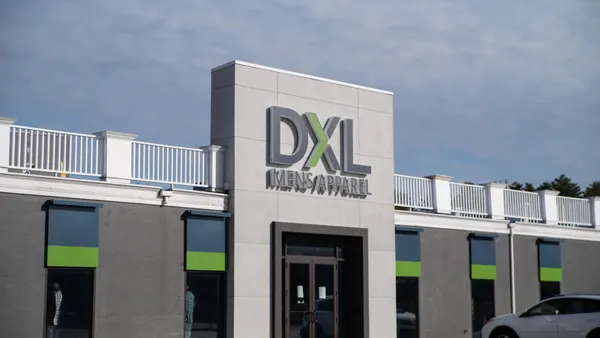UPDATE: February 3, 2020: Moody's downgraded GameStop's corporate rating to B2 from Ba2 due to “weaker than anticipated sales and operating performance, driven largely by declines in new hardware and software sales," weeks after the gaming retailer reported crushing sales declines during the holiday period. Analysts with Moody's expect sales to drag through 2020 as customers hold off on new game purchases until the next generation of consoles are released.
"Sustained competitive threats from downloadable, streaming, and subscription gaming services, as well as the company's ongoing transformation to improve profitability and evolve its vendor and partner relationships, elevate the company's business and operational risk during a period of industry weakness," Moody's Vice President Adam McLaren said in a statement. Moody's has a stable outlook for GameStop.
Dive Brief:
- S&P Global downgraded GameStop's issuer credit rating to B+ last week, according to an emailed press release.
- In doing so, analysts with the ratings firm cited "near-term performance volatility and long-term competitive uncertainties."
- S&P has a negative outlook for the gaming retailer, which could indicate further downgrades. Analysts said the outlook indicates "our expectation that intense competition from online and traditional retailers, economic uncertainty, and the lengthening of the console cycle could result in further deterioration for operating prospects."
Dive Insight:
Financially, GameStop has time. Its balance sheet is relatively unburdened by debt, especially relative to its more than $8 billion in annual revenue. It also is still paying shareholders a dividend that could be used to cover losses or finance investments if needed. But, as Jeffries analysts pointed out after an abysmal third quarter for GameStop, the company needs a "sense of urgency."
That is because there is a real risk of GameStop becoming obsolete if video games rapidly shift to the cloud and away from physical formats. As S&P analysts put it, they believe "competition and technological changes in the video game industry will continue to evolve over time, leading to potentially diminished long-term growth prospects for the company."
GameStop hopes to adjust through new exclusive partnerships with brands, turning its stores into hubs for gamers and shifting its merchandise mix, moving to high-margin products like collectibles and accessories. S&P analysts said the company have to take on high levels of capital spending to "migrate the business away from core video game retailing."
In the nearer term, GameStop is caught in a transition between generations of game consoles, with consumers holding off on new game purchases until the next wave of consoles is released. That, according to executives, partly accounts for why its sales fell off by 26% year over year in Q3. The only part of GameStop's business that grew during the quarter was collectibles; the rest of its major sales categories fell by double digits. The quarter was so bad that management slashed their expectations for the year's performance.
Put simply, the company is facing major category challenges in the near term and a potential existential crisis in the long term. But along with its relatively healthy finances, it also has the advantage of short store leases. If a mass exit from stores proves necessary to deal with falling sales, GameStop could do so with relative ease compared to other retailers stuck in longer leases that may need a bankruptcy to exit.
Although S&P analysts noted the potential for greater spending, the greater risk may be underinvesting. They noted they could lower the company's rating again "if secular shifts and increased competition lead to further erosion in GameStop's competitive position." They added, "This scenario could occur if the company inadequately invests in its store base or is unable to broaden its digital gaming penetration."














